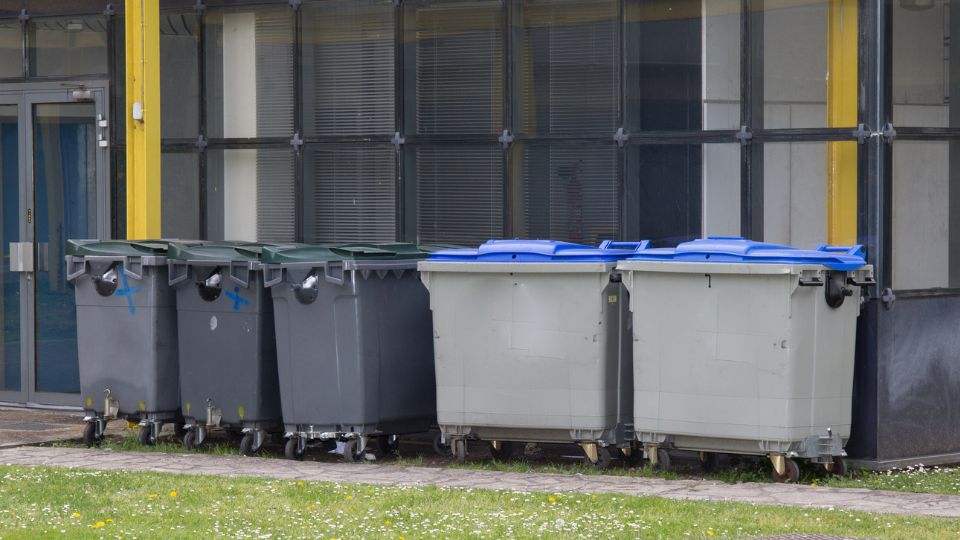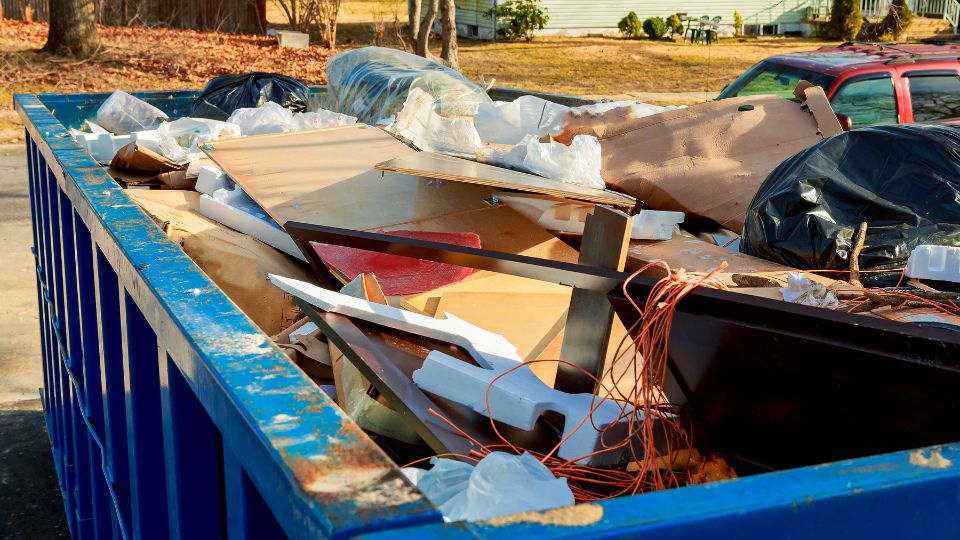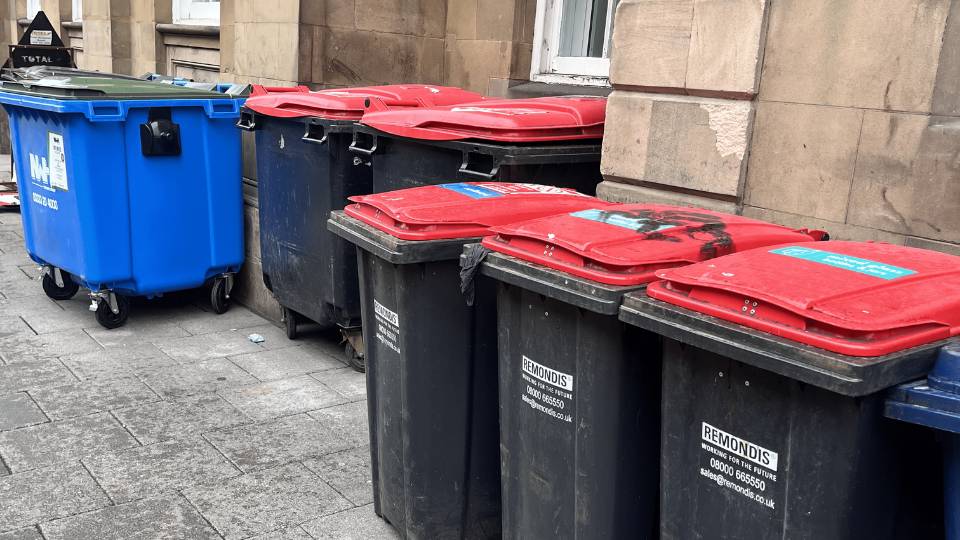
Quick Summary:
- You can dispose of general waste, recyclables, food waste, and glass waste in commercial bins, each requiring specific handling and segregation.
- To manage waste responsibly, ensure proper segregation, train employees, regularly review waste practices, and use professional waste management services.
Knowing what you can and can’t put in a commercial waste bin is important for UK business owners to stay compliant with waste regulations, reduce their environmental impact, and keep their operations running smoothly.
Properly sorting and disposing of waste is a legal requirement for business owners and by doing so can support sustainability and cut costs.
Here’s a straightforward guide to help you understand what belongs in your commercial waste bin and how to manage waste effectively.
Table of Contents
- Types of Waste for Commercial Bins
- Best Practices for Waste Management
- Legal Requirements
- Conclusion
Types of Waste for Commercial Bins
Commercial waste bins are designed to handle various waste types, knowing which items are suitable for general disposal and which require special handling is crucial.
1. General Waste
General waste is non-recyclable waste which cannot be processed through your recycling streams.
This includes:
- Packaging Waste – Non-recyclable packaging materials such as certain plastics, mixed materials, and composite packaging.
- General Office Waste – Items like non-recyclable paper, envelopes, and non-recyclable stationery.
2. Recyclable Waste

Many businesses are incorporating recycling practices into their waste management strategies.
Recyclable waste should be sorted separately and includes:
- Glass – Bottles and jars that are clean and free from contamination.
- Metals – Aluminium cans and steel cans.
- Plastic – Plastic bottles, containers, and some types of plastic film.
3. Organic Waste
For businesses with significant food waste, organic waste bins may be a part of your waste management plan. Food waste can either go in a brown or green wheelie bin and the following items can be disposed of in these bins:
- Food Scraps – Vegetable peelings, fruit scraps, and other organic food waste.
- Green Waste – Plant materials and garden waste if applicable.
4. Glass Waste
Glass waste requires specialised handling to ensure safety and proper recycling. It is essential to separate glass from other types of waste to prevent contamination and facilitate recycling processes.
- Bottles and Jars: Rinse these and place them in designated glass recycling bins. The Labels can usually be left on.
- Broken Glass: Handle with care to avoid injury. Place in a sturdy container or wrap securely before disposal in glass-specific bins.
- Glassware and Ceramics: Items like drinking glasses and ceramics typically cannot be recycled with standard glass and need to be disposed of separately.
Best Practices for Waste Management

1. Know Your Waste Streams
Understand the types of waste generated by your business and set up appropriate waste bins and recycling stations to manage them effectively.
2. Employee Training
Staff must understand proper waste segregation practices to sort waste correctly and efficiently.
3. Regular Reviews
Regularly review your waste management practices and bin usage to identify opportunities for improvement and ensure compliance with updated regulations.
4. Work with Waste Management Providers
Partner with licensed waste management providers who can offer advice, collect and dispose of waste responsibly, and help you comply with legal requirements.
Legal Requirements
In the UK, businesses must comply with the Environmental Protection Act 1990 and the Waste (England and Wales) Regulations 2011, among other regulations.
Laws mandate proper waste disposal and recycling practices, ensuring that waste is managed responsibly and does not harm the environment.
Conclusion
Proper use of commercial waste bins is essential for effective waste management and regulatory compliance.
For further guidance, always consult local regulations and work with professional waste management services to ensure you meet all legal and environmental requirements.







